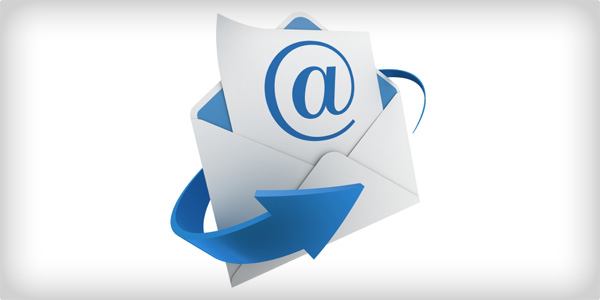If your Facebook Business Page seems to be less and less effective at generating views and engagement, you’re not alone. A Facebook Group Page could change that.you’re not alone. Constant changes to the algorithm have made it harder than ever to figure out what will catch a customer’s eyes—if it even shows up in their feed in the first place. These days, without significant spending, a focus on Facebook ads, or knowledge of Facebook optimization, your posts to your Business Page will most likely only be seen very a very small portion of your followers.
The good news is that there’s a simple solution. Facebook Groups. Facebook Groups offer a way to engage your customers and fans directly, around shared interests, while side-stepping that promoted-content feel.
1. A Facebook Group Page Lets You Offer Clear Value
The most important thing to remember when using a Facebook Group Page as a form of content marketing is the same golden rule that applies to any other sort of content marketing: you have to offer value. Audiences online (and on social media, in particular) are constantly bombarded with sponsored content and ads. This has, unfortunately, trained them to be pros at sniffing out what is genuine and what is a sales pitch. Customers have no problem pressing the eject button as soon as something seems like too much of an ad for their liking.
Setting up a Facebook Group Page around a shared interest that has to do with your business allows you to bypass a lot of these problems. You can create organic conversations around your topic of choice that avoid any hint of salesy-ness.
The important thing here is to stay focused on delivering value. As with any kind of content marketing, the sales pitch is secondary. Instead, offer value, create real connections, and build trust.
2. Facebook Group Notifications Will Show Up in Their Feed
The big difference between a Facebook Group Page and a Facebook Business Page is how many of your posts show up in an average user’s feed. Even though many people may like your Facebook Business Page, that doesn’t mean they’ll get notified every time you post something new. If they’re a member of a Facebook Group, however, they do get that notification, and posts will even show up in their feed.
3.Build Trust Through Personal Connections
Most people want to engage with a person, not a company. On a Facebook Group Page, you can be a face instead of a brand. The truth is that customers don’t really want to engage with your company, they want to connect with another human. The old saying that “people buy from people” applies here.
The key to running a successful Facebook Group Page is to engage people in meaningful discussions around topics they find relevant or interesting. Again, it comes back to finding a way to offer value to your members.
If you’re just focused on selling something, you’ll find people don’t stick around for long. Instead, get your audience invested in the conversation and invested in you, personally, and you’ll make the sale when the time is right.
4. Get Instant Feedback From Polls
Groups don’t just offer value to your company by creating an audience to which you can sell. If you’re doing your job right, your group will be comprised of people who share a lot of interests with your target audience. With Facebook’s poll feature, you can take advantage of that to get immediate feedback from people you care about converting on any question you might have.
The poll gives you an instant picture of where you stand, but you can also create a conversation around the poll to drill down deeper. If you have questions about anything from product design to messaging, take it to your group.
You’re not going to put one over on anyone—you can be transparent about why you think group members will provide you with useful feedback. Honesty will buy you honesty, and that’s what you truly want when you’re looking for feedback.
5. Make Offers and Drive Action
Ultimately, if you’ve created a Facebook Group Page to help grow your business, then you eventually want to sell something to someone. As we’ve said before, social media users are pretty jaded when it comes to ads, so you need to be careful about the timing and tone of your offer.
Before you swing into action, make sure you’ve been providing enough value for enough time to your community. If you act too soon, you stand a good chance of sending some people running for the hills before they’ve even heard you out.
Treat your carefully curated and cared for Facebook Group community differently than a random audience. Make sure that your message is personalized and truly makes sense for them.
When appropriate, take advantage of the pin feature to keep your offer at the top of the page. This strong placement serves as a call to action and ensures that regulars to your page will see it.
What You Can Do Right Now
If you’re wondering why your Facebook Business Page isn’t getting the engagement you thought it would, it might be time to consider starting a Facebook Group Page. Running a community like this around an interest shared by your key customers can be the quickest way to drive engagement and ultimately make a connection. At the same time, remember that the standard rules of content marketing apply here, too: Always deliver value, and don’t be in a rush to sell.
- Use a Facebook Group Page to deliver value to your target audience.
- Group pages show up in your feed, while Business Pages don’t (without an ad spend).
- Engage personally with your group members, instead of as a brand.
- Use polls to get instant feedback on key questions.
- Make an offer when the time is right.
- Watch for the launch of new Cox Business Group Page(s) in January
- 5 Reasons Why Cloud Solutions are Essential for Small Business - February 4, 2024
- How to Migrate Your Business to the Cloud in 7 Steps - June 16, 2021
- How Beacon Technology is Revolutionizing Business and Marketing - March 18, 2021


